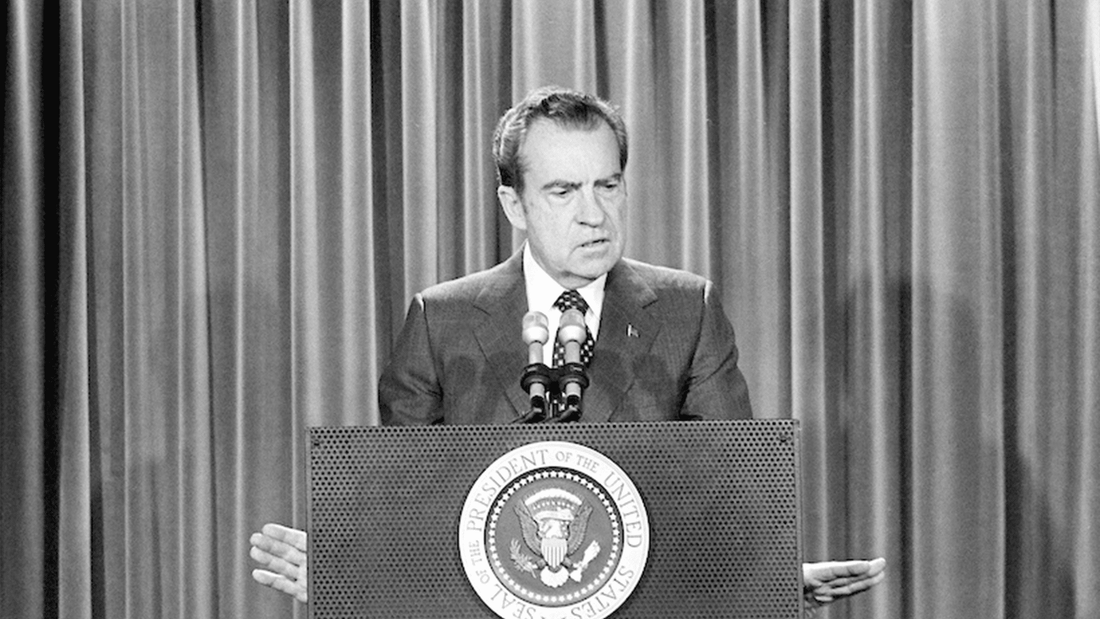Leaked Nixon Tapes Reveal the Truth Behind the War on Drugs

Recently leaked audio tapes of former President Richard Nixon have exposed the real motivations behind the War on Drugs—a campaign that has had lasting consequences across Latin America and the globe.
While Nixon publicly declared substance use as the nation’s “public enemy No. 1” in 1971, the tapes reveal that he privately acknowledged marijuana was “not particularly dangerous.” This contradiction underscores how the War on Drugs was less about public safety and more about political gain.
The Real Motivation: Politics Over Public Safety

Nixon’s administration classified marijuana as a Schedule I drug, alongside heroin and LSD, which are considered to have no medical value and a high potential for abuse. This classification has led to millions of arrests and delayed scientific research on the therapeutic benefits of cannabis. However, the newly revealed recordings from 1973 paint a different picture.
Nixon admitted that marijuana wasn’t a significant threat and that much of the public supported legalizing it. Instead of basing his decisions on public opinion or scientific evidence, Nixon used the War on Drugs to target groups he viewed as political threats, including anti-Vietnam War protesters and Black activists. By criminalizing cannabis, his administration suppressed dissent and maintained control.
The Nixon Tapes: Unearthing the Truth

These secret audio recordings, uncovered by a Minnesota cannabis lobbyist after combing through hours of Nixon’s tapes, capture conversations that directly contradict the administration’s public stance on cannabis.
In one of the recordings from 1973, as reported by The New York Times, Nixon admits, “I know that it’s not particularly dangerous,” contradicting the narrative his administration had pushed, which criminalized cannabis and demonized its users.
“Let me say, I know nothing about marijuana. I know that it’s not particularly dangerous; I know most of the kids are for legalizing it. But, on the other hand, it’s the wrong signal at this time.” -President Richard Nixon
The tapes also show Nixon pondering whether marijuana was more harmful than other substances like alcohol or even coffee, though he remained reluctant to engage in a candid public debate. These revelations offer critical insight into how the War on Drugs was driven more by political motives than public health concerns. As historian Douglas Brinkley noted, Nixon used the criminalization of cannabis as a tool to undermine his political enemies.
This newly surfaced evidence sheds light on the political ambitions that shaped the War on Drugs, highlighting the long-standing injustices that continue to influence cannabis laws today.
The Lasting Impact on Latin America

Nixon’s policies didn’t just affect the U.S.; they reverberated across Latin America. The War on Drugs fueled violence, corruption, and the rise of powerful drug cartels in countries like Mexico, Colombia, and Peru. Innocent lives have been lost, and the drug trade has grown into a multi-billion-dollar illicit economy. For many countries, Nixon’s political maneuvering created decades of chaos and devastation.
In Mexico alone, more than 300,000 people have been killed since the country launched its own drug war in 2006, with countless others disappearing. Despite efforts to curb the violence, the illegal drug trade continues to thrive, making it clear that the policy was never about public health—it was about political power.
Mass Incarceration and Racial Injustice in the U.S.

The fallout in the U.S. has been equally destructive. Nixon’s War on Drugs disproportionately impacted minority communities, particularly Black and Latino populations. Black Americans are nearly four times more likely to be arrested for cannabis-related offenses than white Americans, despite similar usage rates, according to the American Civil Liberties Union (ACLU). Non-violent offenders continue to fill U.S. prisons, contributing to the crisis of mass incarceration.
Meanwhile, over 100,000 people die from drug overdoses annually in the U.S., yet cannabis, which Nixon admitted was not a major threat, remains classified as a Schedule I drug. The societal toll is immense, and the need for reform is long overdue.
The Push for Change

As public awareness grows and more states legalize cannabis, a new conversation is taking shape. In 2022, President Biden issued pardons for thousands of people convicted of minor marijuana crimes. Federal agencies are reconsidering marijuana’s classification, with some advocating for its removal from Schedule I. Vice President Kamala Harris has even called it “absurd” that cannabis remains in the same category as heroin.
While support for cannabis reform is growing, it’s not universal. Some policymakers still argue for keeping cannabis in Schedule I, citing concerns about newer, more potent strains and risks for young people. But as more revelations about Nixon’s political motivations come to light, the push for rational, evidence-based policies continues to gain momentum.
Latin America’s Role in Cannabis Reform
Across Latin America, countries are rethinking their approach to cannabis. Uruguay became the first country to fully legalize recreational cannabis in 2013, and Mexico’s Supreme Court has ruled that prohibiting personal cannabis use is unconstitutional. Colombia and Argentina are also exploring more lenient policies, focusing on decriminalization and medical marijuana.
For Latin American countries on the front lines of the War on Drugs, these changes represent a step toward healing decades of violence and injustice. However, many nations still grapple with the deep-rooted impact of U.S. drug policies, and change often faces resistance from entrenched political interests.
A New Era for Cannabis
The leaked tapes are a reminder of how political motives shaped the War on Drugs and stunted progress on cannabis reform. With the truth now surfacing, there is an opportunity to push for change. As society continues to learn more about the therapeutic potential of cannabis and witness its benefits for mental health, chronic pain, and opioid addiction, a new era for cannabis is emerging.
At Mesobis, we believe in challenging outdated perceptions and advocating for responsible cannabis use that honors both culture and community. Join us in breaking the stigma and reshaping the future of cannabis.

